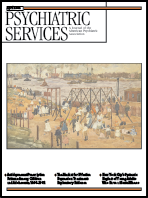The Hedgehog, the Fox, and the Magister's Pox: Mending the Gap Between Science and the Humanities
This book is Stephen Jay Gould's swan song, written in 2001, a year before his death. Through an examination of early scientific texts, mainly from Gould's personal collection, The Hedgehog, the Fox, and the Magister's Pox argues that the sciences and the humanities should foster mutual regard and respect instead of wrangling about supremacy. That assertion might seem absurdly self-evident, but the book is polemical and desperately impassioned.
Gould's goad was sociobiologist Edward O. Wilson's claims in the widely reviled Consilience (1) that science will subsume all the humanities and that science should guide all humanistic, artistic, and moral discussion. Wilson's reductionistic program of "turning as much philosophy as possible into science" is, frankly, delusional, and Gould's rebuttal too polite and esoteric, but the debate raises key questions for the soul of psychiatry.
Do many of the trends in our field—treating target symptoms and receptors instead of people, blanketing with algorithms, the New Freedom Commission report's expectation that all mental disorders can be prevented or cured, "neurophilosophy" as a way of subsuming philosophy under science (2)—spring from a reductionistic worldview that science can solve everything? Treatment always involves the moral question of what should be done, and, as Gould shows, reductionism wrongly presumes that science can take on morality. Are we selling ourselves quasi-scientific promises that by their very nature cannot satisfy our primary humanitarian aim? And although psychiatry certainly bridges the worlds of science and the humanities, does most psychiatric clinical research, driven by dollars and desired clinical outcomes and largely devoid of skepticism, even constitute science? Gould's accounts of biased interpretations in the history of even the physical sciences remind us how dangerous the will to believe can be.
Gould has always portrayed himself as a benevolent polymath, but in this book he makes uncharacteristic jabs at psychiatry, calling Freud's theory "cockamamie and unsupported" and describing psychiatry that isn't science-based as "canonical psychobabble" (in reference to his son's autism). He relies on the unconscious for his argument but lacks any framework to characterize it. His speculations about the operation of the psyche would have been much enhanced by basic reading from theory of the mind—as in lengthy attempts to explain why people think in dichotomies, and the almost comic expectation that exposing dichotomies makes them disappear. The suggestion that "any genuinely wise person" must be learned in both the sciences and the humanities is somewhat distasteful, as is the almost sappy idealization of intellectual culture.
The Hedgehog, the Fox, and the Magister's Pox is not vintage Gould. It replaces the eclectic charm of his previous work with a repetitive and pedantic insistence. But Gould's primary pleas—that we must remember our historic humanitarian and scientific roots and that the guardians of intellectual culture have a responsibility to pursue truth unfettered by bias—are passionately sincere and merit our considered attention.
Dr. Thielke is a third-year resident in psychiatry at the University of Washington School of Medicine in Seattle.
1. Wilson EO: Consilience: The Unity of Knowledge. New York, Knopf, 1998Google Scholar
2. Churchland PS: Brain-Wise: Studies in Neurophilosophy. Boston, MIT Press, 2002Google Scholar



